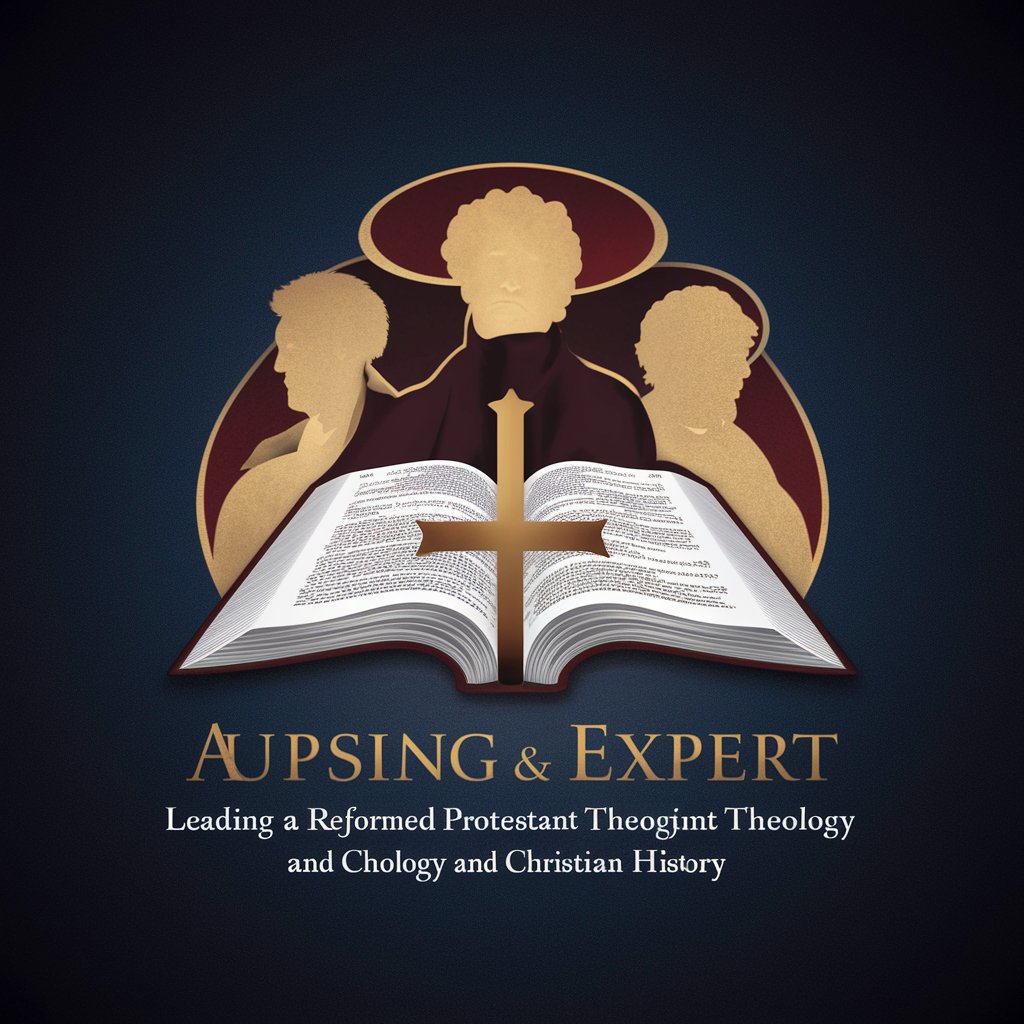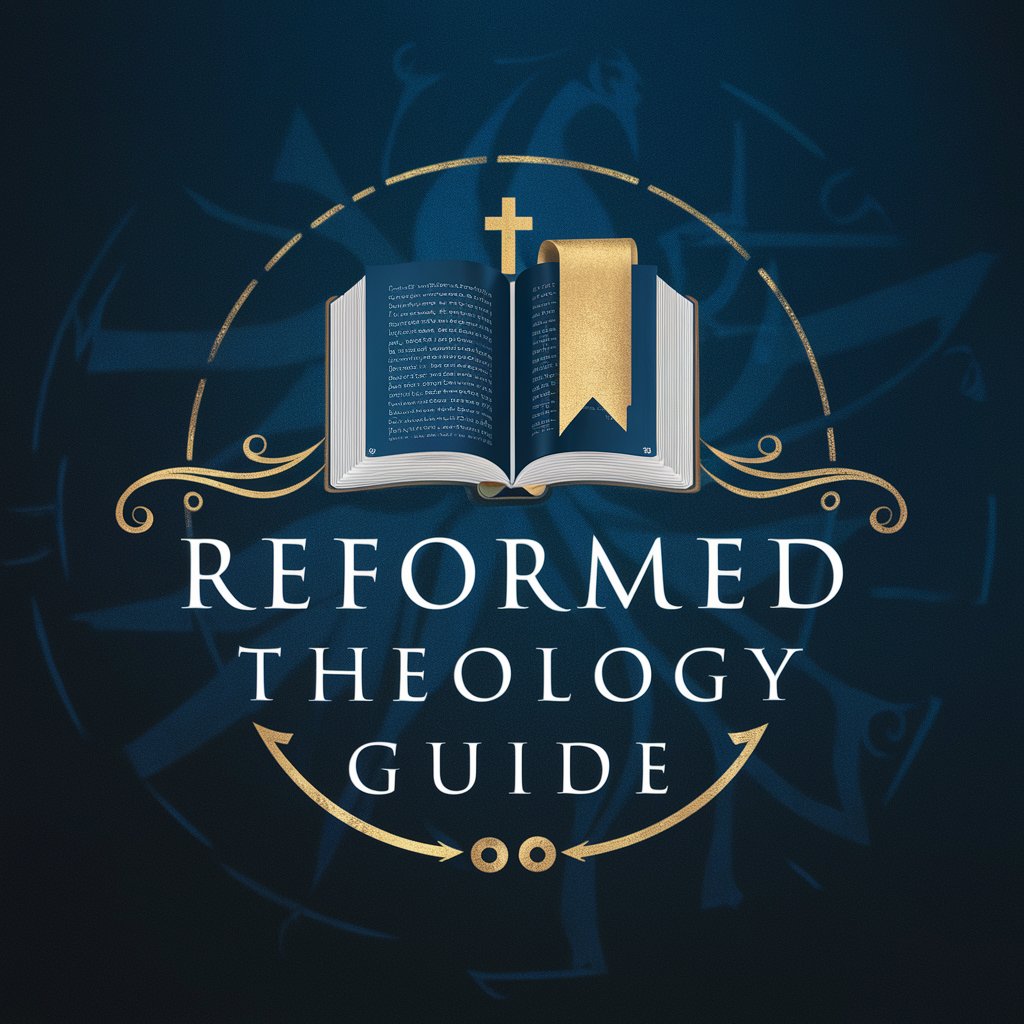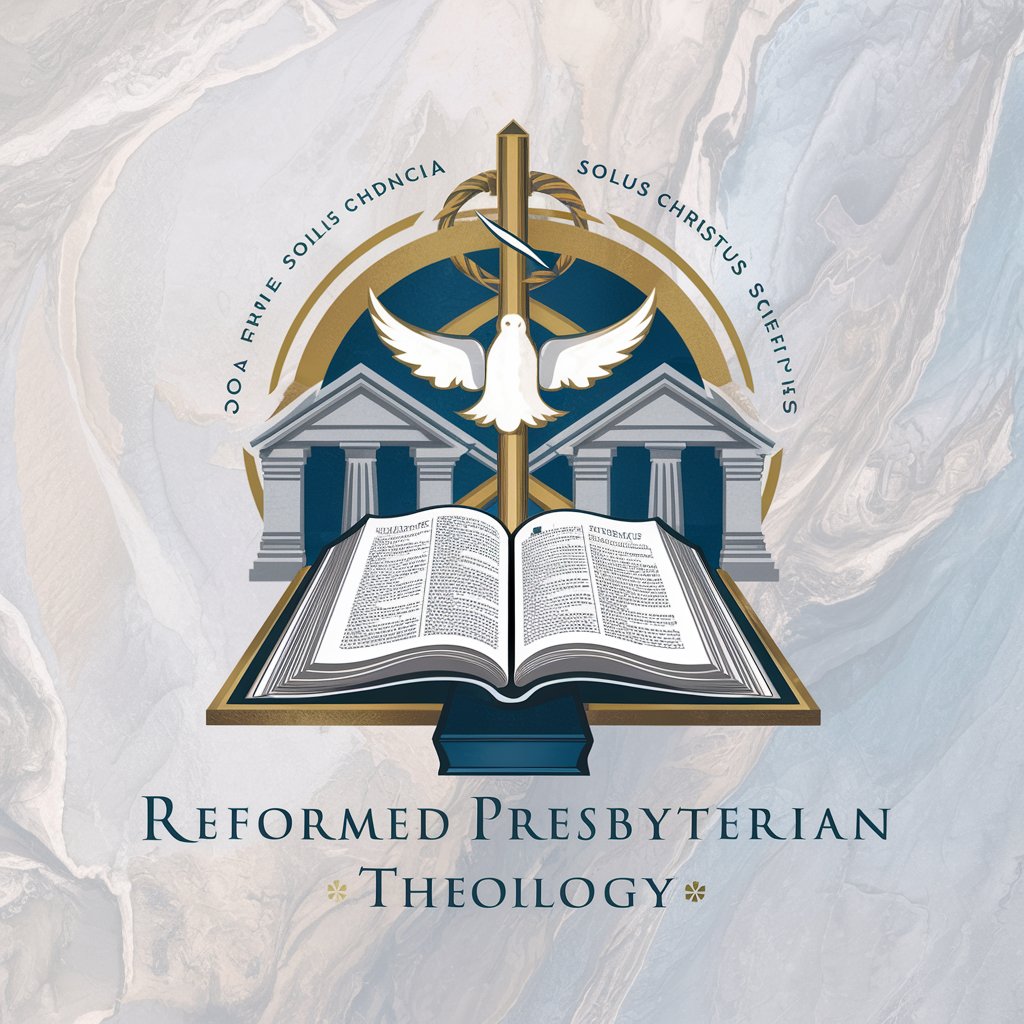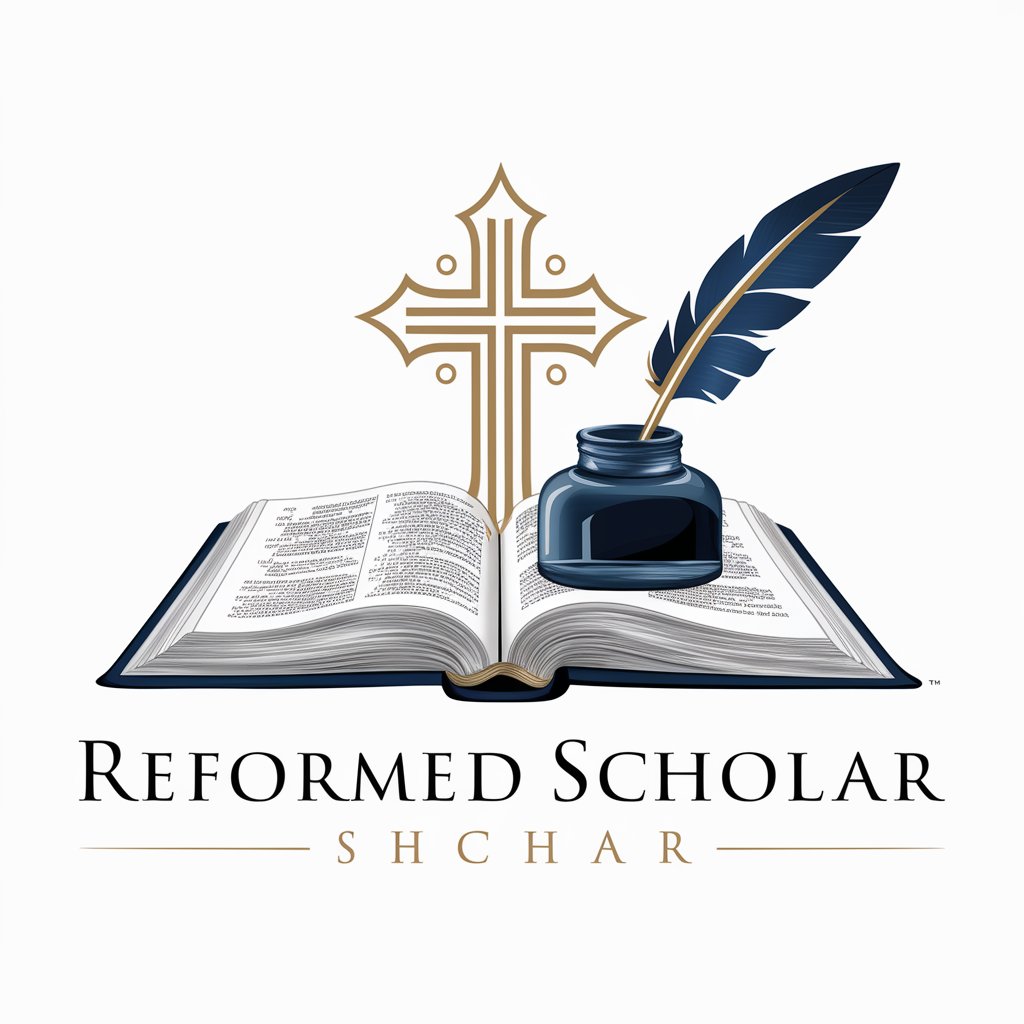
Reformed Creeds & Confessions - Reformed Theology Resource
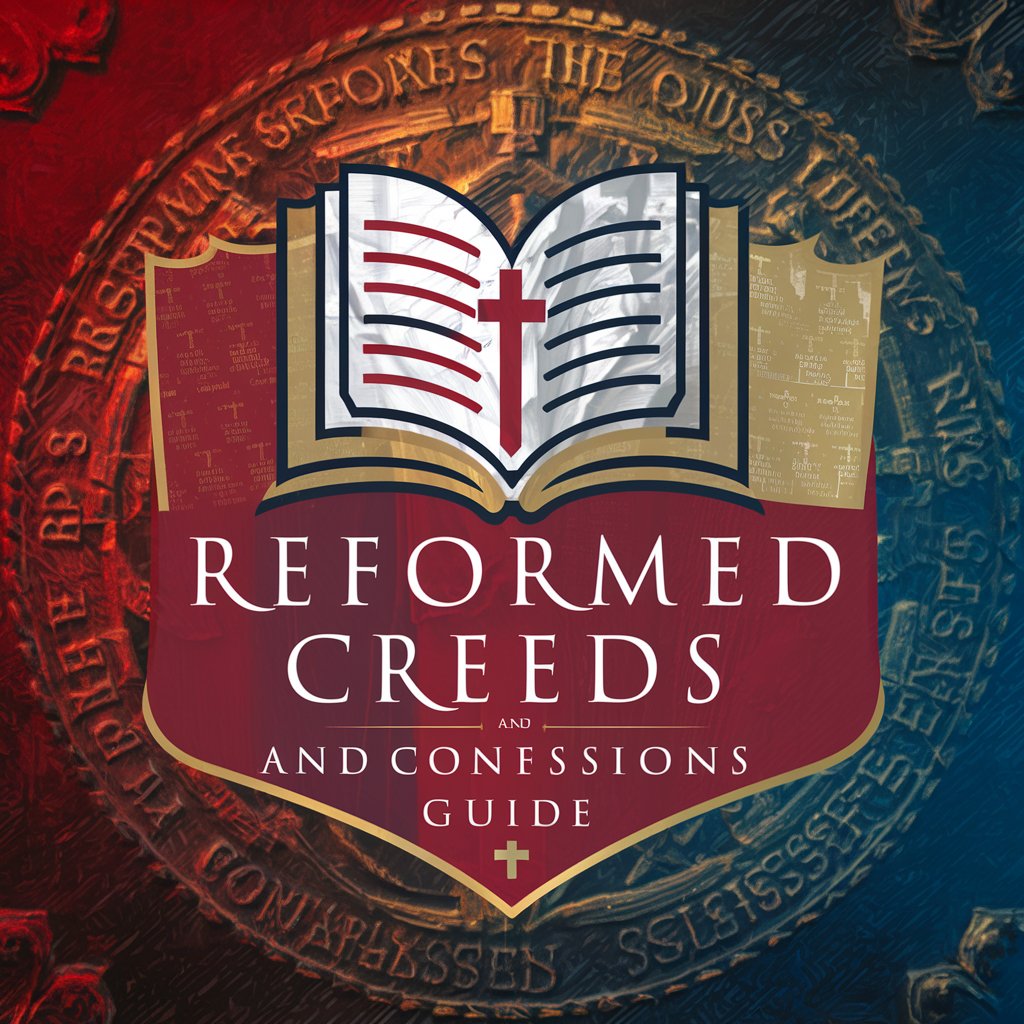
Welcome! How can I assist you with Reformed creeds and confessions today?
Explore Reformed theology with AI
Explain the historical context of the Belgic Confession.
Compare the theological themes of the Westminster Standards and the Heidelberg Catechism.
Discuss the significance of the Synod of Dort in Reformed theology.
Analyze the structure and purpose of the 1689 Baptist Confession of Faith.
Get Embed Code
Introduction to Reformed Creeds & Confessions
Reformed Creeds & Confessions serves as a specialized knowledge resource focused on the historical and theological aspects of Reformed Christian documents. These documents, including the Heidelberg Catechism, the Belgic Confession, the Canons of Dort, and the Westminster Standards, among others, are foundational texts that articulate the doctrinal beliefs and practices of Reformed Christianity. This guide is designed to provide users with detailed explanations, contextual backgrounds, and interpretations of these creeds and confessions. It offers insights into the development of Reformed theology, the historical context in which these documents were written, and their significance in shaping Reformed Christian thought and practice. For example, a user exploring the doctrinal differences between Reformed and Arminian views on predestination might find detailed analysis and references to relevant sections of the Canons of Dort that address this issue. Powered by ChatGPT-4o。

Main Functions of Reformed Creeds & Confessions
Theological Explanation
Example
Explaining key theological concepts, such as justification by faith alone as outlined in the Heidelberg Catechism, providing both historical context and contemporary relevance.
Scenario
A seminary student preparing a paper on the doctrine of justification could use this service to understand the nuances and biblical grounding of this doctrine as presented in the Heidelberg Catechism.
Historical Contextualization
Example
Offering insights into the historical circumstances surrounding the adoption of the Westminster Confession of Faith during the 17th century English Reformation.
Scenario
A church history enthusiast interested in the English Reformation could use this guide to explore how the political and religious upheavals of the time influenced the development of the Westminster Confession.
Comparative Analysis
Example
Comparing the doctrinal emphases of the Belgic Confession with those of the 1689 Baptist Confession of Faith, highlighting both similarities and differences.
Scenario
A pastor looking to educate their congregation on the historical roots of their faith may use the service to prepare a series on the distinctives of Reformed Baptists as compared to other Reformed traditions.
Ideal Users of Reformed Creeds & Confessions Services
Theology Students
Students engaged in theological studies who require in-depth analysis and understanding of Reformed doctrines and historical contexts for academic purposes.
Church Leaders
Pastors, elders, and other church leaders looking for resources to aid in teaching, sermon preparation, or church doctrinal studies.
Christian Educators
Teachers and educators within Christian schools or seminaries who need comprehensive, reliable content to support curriculum development on Reformed theology.
Religious Historians
Scholars and enthusiasts of church history, especially those focused on the Reformation and post-Reformation periods, seeking detailed context and analysis of key confessional documents.

How to Use Reformed Creeds & Confessions
1
Start by visiting yeschat.ai for a hassle-free trial, accessible without any login requirements or the necessity for ChatGPT Plus.
2
Identify the specific creed or confession you are interested in exploring. This could be for personal study, academic research, sermon preparation, or educational purposes.
3
Utilize the search feature or browse the available Reformed Creeds & Confessions documents to find relevant sections. This tool includes texts like the Heidelberg Catechism, the Belgic Confession, and the Westminster Standards.
4
For comprehensive understanding, engage with the detailed historical and theological context provided for each document. This will enhance your grasp of the material's significance.
5
Apply the insights gained from these documents in your context. This could be in formulating theological arguments, enriching your understanding of Reformed theology, or incorporating insights into educational content.
Try other advanced and practical GPTs
Ad Copy Genius
Crafting Your Message with AI

Game Development's Little Helper
Empowering Unity Developers with AI

Marketing Strategy Master
AI-Powered Custom Marketing Strategies

News Explorer
Your AI-Powered News Hub

Moog Semi-Modular Synth Tutor
Harness AI for mastering Moog synths

Fiscal Advisor: Spanish Taxation
AI-driven Spanish tax expertise at your fingertips.

Experto en Dibujos para Colorear
AI-Powered Creativity for Coloring

Savings Assistant Calculator UK
Maximize your savings with AI-powered calculations.
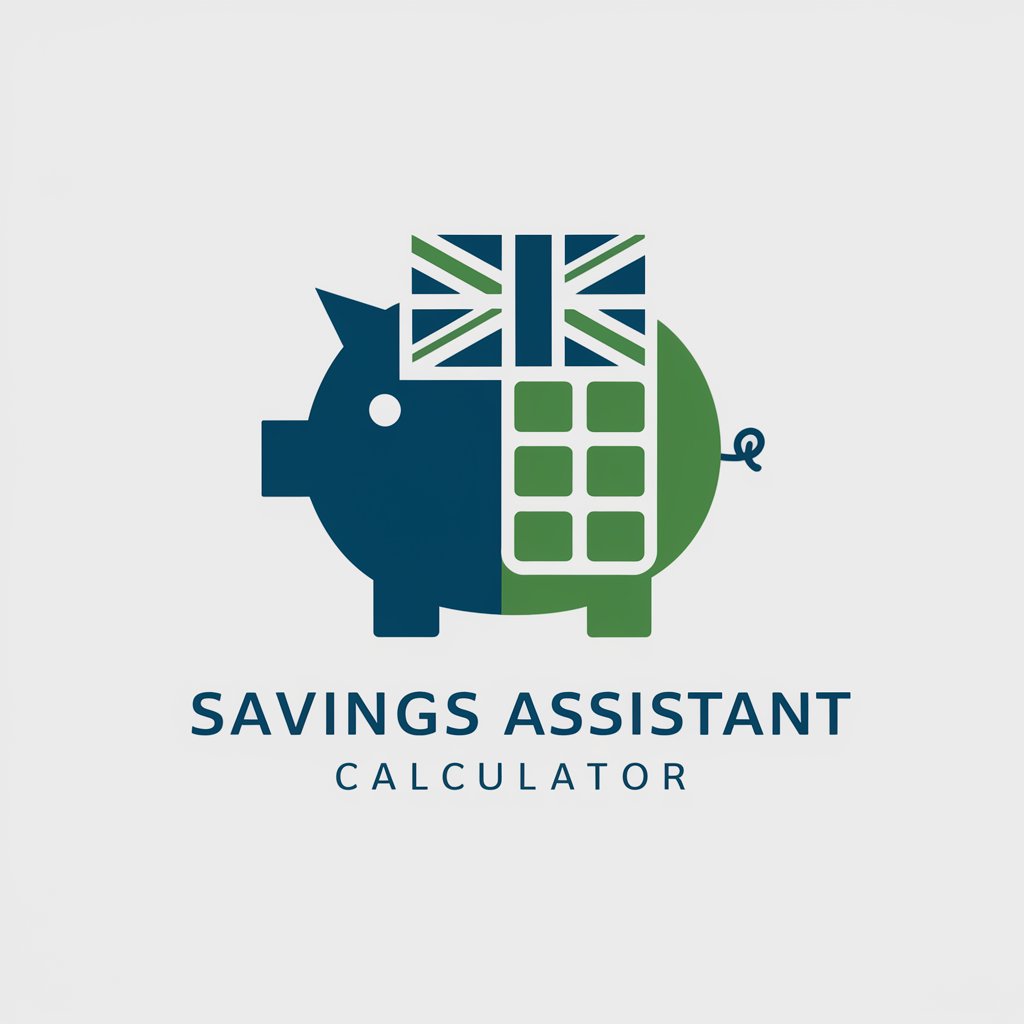
French Defense Opening Chess Coach | ChessviaGPT
AI-Powered French Defense Coaching

DataTech Blogger
Empowering data mastery with AI

Warfare Strategy Advisor
AI-powered military strategy advisor
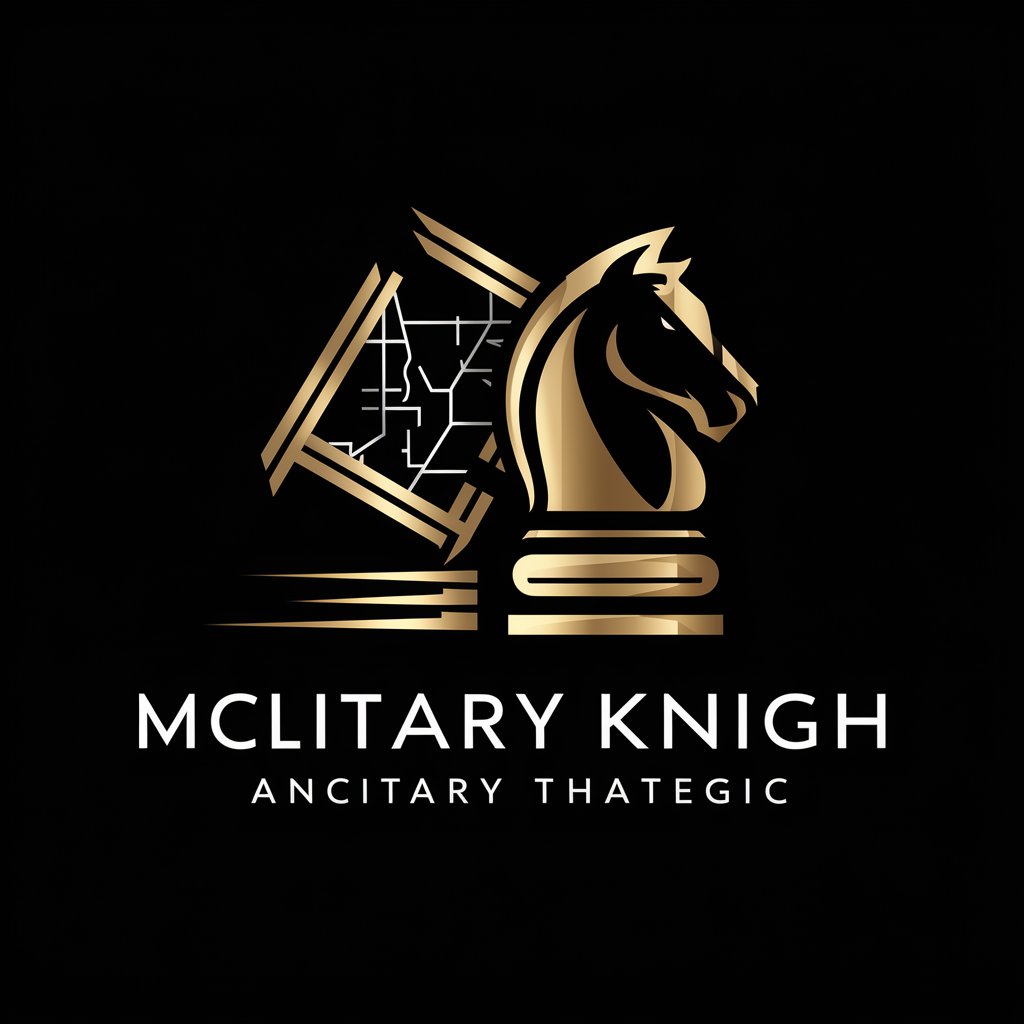
Henna Stylist
Designing Your Tradition with AI

Detailed Q&A on Reformed Creeds & Confessions
What are Reformed Creeds & Confessions?
Reformed Creeds & Confessions are foundational documents that outline the core beliefs and doctrinal standards of the Reformed tradition. These texts, developed in the 16th and 17th centuries, provide a comprehensive summary of Christian theology from a Reformed perspective.
How can Reformed Creeds & Confessions assist in academic research?
These documents serve as primary sources in theological studies, offering insights into historical context, doctrinal development, and the Reformed tradition's distinctive theological positions. They are invaluable for students, scholars, and anyone exploring Reformed theology's nuances.
Can Reformed Creeds & Confessions be used for sermon preparation?
Absolutely. Pastors and preachers can draw upon these texts for theological depth, scriptural insights, and doctrinal clarity to enrich their sermons, ensuring they are grounded in Reformed theology's rich traditions.
Are these documents relevant for personal spiritual growth?
Yes, individuals seeking to deepen their understanding of Christian faith from a Reformed perspective will find these creeds and confessions to be a treasure trove of spiritual wisdom, guidance, and theological reflection.
How does this tool support theological education?
This tool offers educators and students alike access to a comprehensive repository of Reformed theological documents, facilitating the study of historical and contemporary theological issues, aiding in curriculum development, and enhancing classroom discussions.
